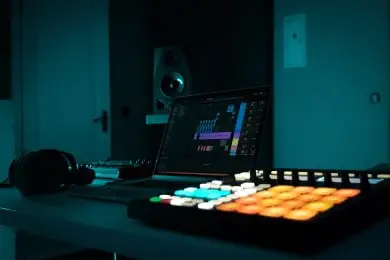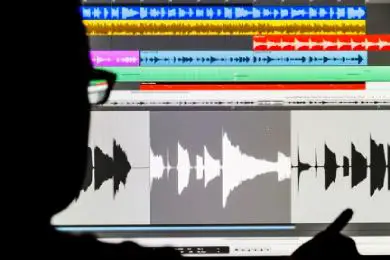If you are a musician, music producer, or sound engineer, you know how important RAM is for music production.
RAM (Random Access Memory) is the core component of any computer system, providing the essential memory needed to store and access data quickly and efficiently.
In this blog post, we will explore the recommended RAM size for music production, understand RAM requirements for music production, and discuss if 8 GB RAM and 16 GB RAM are enough for music production. Let’s get started!
Introduction to RAM
RAM is a type of computer memory that stores data temporarily while a computer is running. It is essential for running applications, storing files, and accessing data quickly. Without RAM, your computer would be unable to perform basic tasks.
RAM comes in different sizes, ranging from 4 GB to 64 GB or more. The size of the RAM determines how much data can be stored and accessed at once. For music production, having more RAM can lead to better performance and smoother workflow.
What is the Recommended RAM for Music Production?
The recommended RAM size for music production depends on the type of music production you are doing.
For basic music production tasks, 8 to 16 GB RAM is enough. But once you start recording and start incorporating more plugins and VSTs 16 GB RAM is recommended.
I personally have 16 GB on my computer and have not run into any issues; however, if you’re using multiple, memory-intensive, VSTs in a single session then you may want to consider having 32 GB RAM – and more is always welcome.
Is 8 GB Ram enough for Music Production?
For basic music production tasks such as sequencing, arranging, and editing music, 8 GB RAM is enough. However, if you are doing more intensive tasks such as recording and using VSTs, 16 GB RAM is recommended.
Is 16 GB Ram enough for Music Production?
For virtual instrument and plugin work, 16 GB RAM is recommended. For video editing, 32 GB RAM is recommended, and for 3D animation, 64 GB RAM is recommended.
Understanding RAM Requirements for Music Production
RAM requirements for music production depend on the type of music production tasks you are doing. If you are doing basic music production tasks such as sequencing, arranging, and editing music, 8 GB RAM is enough.
The amount of RAM you need for music production depends on the programs and plugins you are using. Some programs and plugins require more RAM than others. For example, some plugins may require 8 GB RAM to run, while others may require 16 GB RAM.
Does RAM Size Affect Music Production Performance?
Yes, RAM size can affect music production performance. Having more RAM can lead to better performance and smoother workflow. With more RAM, your computer can store more data and access it faster, which can lead to improved sound quality.
However, it is important to note that having more RAM does not necessarily mean improved performance. The performance of your computer depends on other factors as well, such as the processor, hard drive speed, and graphics card.
RAM will not affect the quality of your music – just thought I’d mention that.
Factors to Consider When Choosing the Right Amount of RAM
When choosing the right amount of RAM for music production, there are several factors to consider.
First, you should consider the type of music production tasks you are doing. For basic music production tasks, 8 GB RAM is enough, but for more intensive tasks such as recording and mixing audio, 16 GB RAM is recommended.
Next, you should consider the programs and plugins you are using. Some plugins may require more RAM than others, so it’s important to check the RAM requirements of your plugins before making a decision.
Finally, you should also consider your budget. RAM can be expensive, so it’s important to find a RAM size that fits your budget.
Conclusion
Choosing the right amount of RAM for music production can be a tricky task. The amount of RAM you need depends on the type of music production tasks you are doing, the programs and plugins you are using, and your budget.
For basic music production tasks, 8 GB RAM is enough, but for more intensive tasks such as recording and mixing audio, 16 GB RAM is recommended – but if you can afford more, it’s nice to have.
We hope this blog post has helped you understand how much RAM you need for music production. If you have any questions, please feel free to reach out to us. Good luck with your music production!



